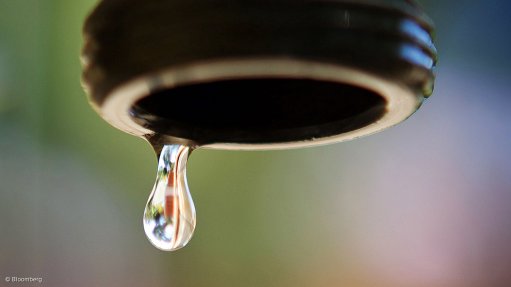
Photo by: Bloomberg
The United Nations General Assembly through the adoption of resolution A/RES/47/193 on 22 December 1992 declared 22 March as the World Water Day (WWD). The South African Human Rights Commission joins the global community in commemorating the WWD under the theme “water for peace”.
Water is the life blood of human existence. Water is important in leading a life of human dignity. Water is the bedrock of prosperity as it is intrinsic to every aspect of human livelihood. Water is central in the preservation of peace. The absence of water has the potential to spark tensions and lead to conflict. Water scarcity and water inequality has featured as the main driver or cause of protest action in South Africa.
The Census 2022 indicate that over the thirty years of democracy the democratic government of South Africa has taken significant strides in water provision. Notwithstanding same, numerous challenges exist which have played a contributory role in the lack of access to water, which relate to amongst others: insufficient attention to maintenance of water infrastructure; insufficient planning; and a dearth in good governance, particularly at a municipal level which affects water provision. These challenges are documented in the various inquiry and investigative reports of the Commission such as the inquiry report into service delivery within municipalities in Mpumalanga; inquiry report into access to water in Limpopo; and the inquiry report into access to water in KwaZulu Natal.
Water quality in South Africa is declining, with about 46% of the water supply systems achieving poor or bad microbiological water quality compliance in 2023. The levels of non-revenue water continue to rise, with the figure standing at 47% in 2023 in comparison to 37% in 2014. The increase in non-revenue water is a cause for concern and points to the fact that insufficient attention is being paid to the maintenance of water infrastructure, particularly at a municipal level.
On WWD the Commission reiterates the call it has made to government that urgent attention is required to turn around the dire state of water resource management and water distribution. Communities in various parts of the country, such as Johannesburg and eThekwini to name just a few, have been grappling with access to water for days on end. This situation is unsustainable and if not addressed with vigour and urgency may lead to social unrest and destabilise peace in the country.
For its part, the Commission will continue to utilise its constitutional and statutory powers to protect, promote and monitor the realisation of the right of access to water in the country. The public has a role to play too, particularly in face of South Africa being ranked amongst the top driest countries and classified as a water scarce country. The Commission urges the public not only to preserve water, which is not an infinite resource, but to be vigilant against water infrastructure vandalism and to report actions of vandalism to the law enforcement agencies.
Issued by the South African Human Rights Commission